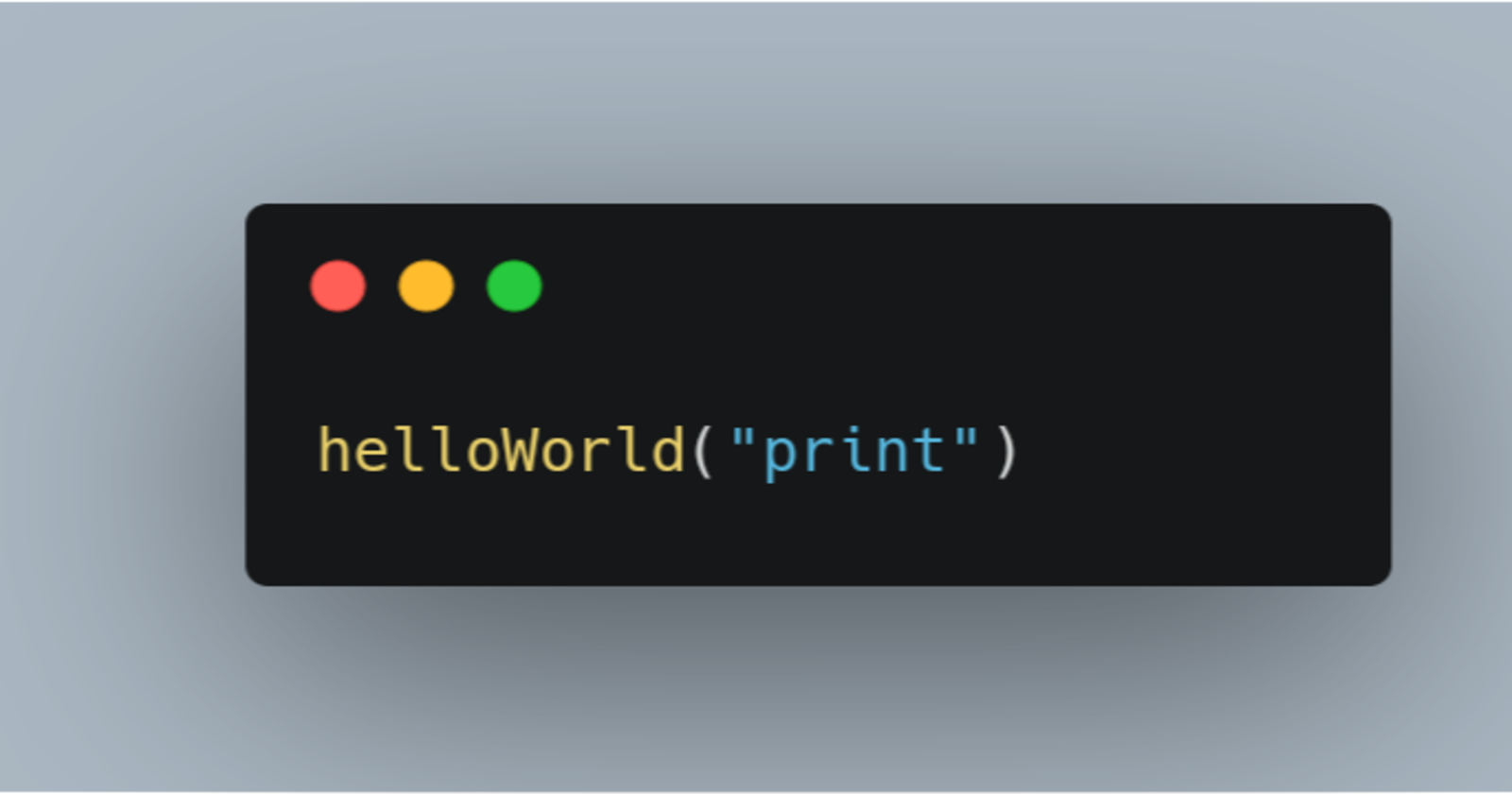'Hello, World!' in 15 different languages 💥
No one can learn every programming language, but here's a delightful taste of 15 different "Hello, World!" programs. From Java to R, join us on a fun and insightful journey through the coding world. Perfect for both beginners and seasoned developers!

Sat, Jul 6, 2024
3 min read

Introduction:
Programming is often seen as a serious and daunting endeavor. However, it doesn't have to be! Today, we're going to take a light-hearted journey into the world of coding by writing the quintessential "Hello, World!" program in not one, not two, but 15 different programming languages. And trust us, it's going to be a rollercoaster ride through the quirky and the downright professional. So, fasten your seatbelts, and let's dive in!
1. Java
public class HelloWorld {
public static void main(String[] args) {
System.out.println("Hello, World!");
}
}
Java, a versatile and widely-used programming language, starts with the traditional public class HelloWorld.
2. Python
print("Hello, World!")
Python, known for its simplicity and readability, keeps it short and sweet with just a single line to greet the world.
3. C++
#include <iostream>
using namespace std;
int main() {
cout << "Hello, World!" << endl;
return 0;
}
C++ takes a more structured approach, with headers and namespaces, but still delivers the iconic message with style.
4. JavaScript
console.log("Hello, World!");
JavaScript, the language of the web, opts for a "log" to the console to announce its presence.
5. C#
using System;
class Program {
static void Main() {
Console.WriteLine("Hello, World!");
}
}
C#, a language for Windows applications, uses a class-based structure to showcase its greeting.
6. SQL
-- SQL doesn't usually say "Hello, World!" but let's break the mold
SELECT 'Hello, World!' AS greeting;
SQL, the language of databases, deviates from the norm by retrieving a message instead of directly printing it.
7. C
#include <stdio.h>
int main() {
printf("Hello, World!\n");
return 0;
}
Good old C, the foundation of many languages, follows the "printf" tradition to send greetings.
8. PHP
<?php
echo "Hello, World!";
?>
PHP, a web scripting language, wraps its message in PHP tags and employs "echo" to make its introduction.
9. Go
package main
import "fmt"
func main() {
fmt.Println("Hello, World!")
}
Go, known for its efficiency, utilizes packages and "fmt" to extend a warm welcome.
10. Swift
import Swift
print("Hello, World!")
Swift, Apple's language for iOS development, imports itself and delivers a swift "print" statement.
11. Kotlin
fun main() {
println("Hello, World!")
}
Kotlin, a modern language for Android, keeps it concise and clear with "fun" and "println."
12. Ruby
puts "Hello, World!"
Ruby, beloved for its readability, simply "puts" the message on the screen.
13. TypeScript
console.log("Hello, World!");
TypeScript, a typed superset of JavaScript, sticks to the familiar "console.log" for its greeting.
14. Scala
object HelloWorld {
def main(args: Array[String]): Unit = {
println("Hello, World!")
}
}
Scala, known for its elegance, introduces an "object" and a "def" to send its warm regards.
15. R
cat("Hello, World!\n")
R, a language for statistical computing, uses "cat" to convey its message with a newline character.
Each of these programming languages may have its own quirks and purposes, but they all unite in the simple act of saying "Hello, World!" It's a testament to the diversity and creativity in the world of coding. So, whether you're a beginner or a seasoned developer, remember that coding can be both serious and fun. Happy coding! 🚀